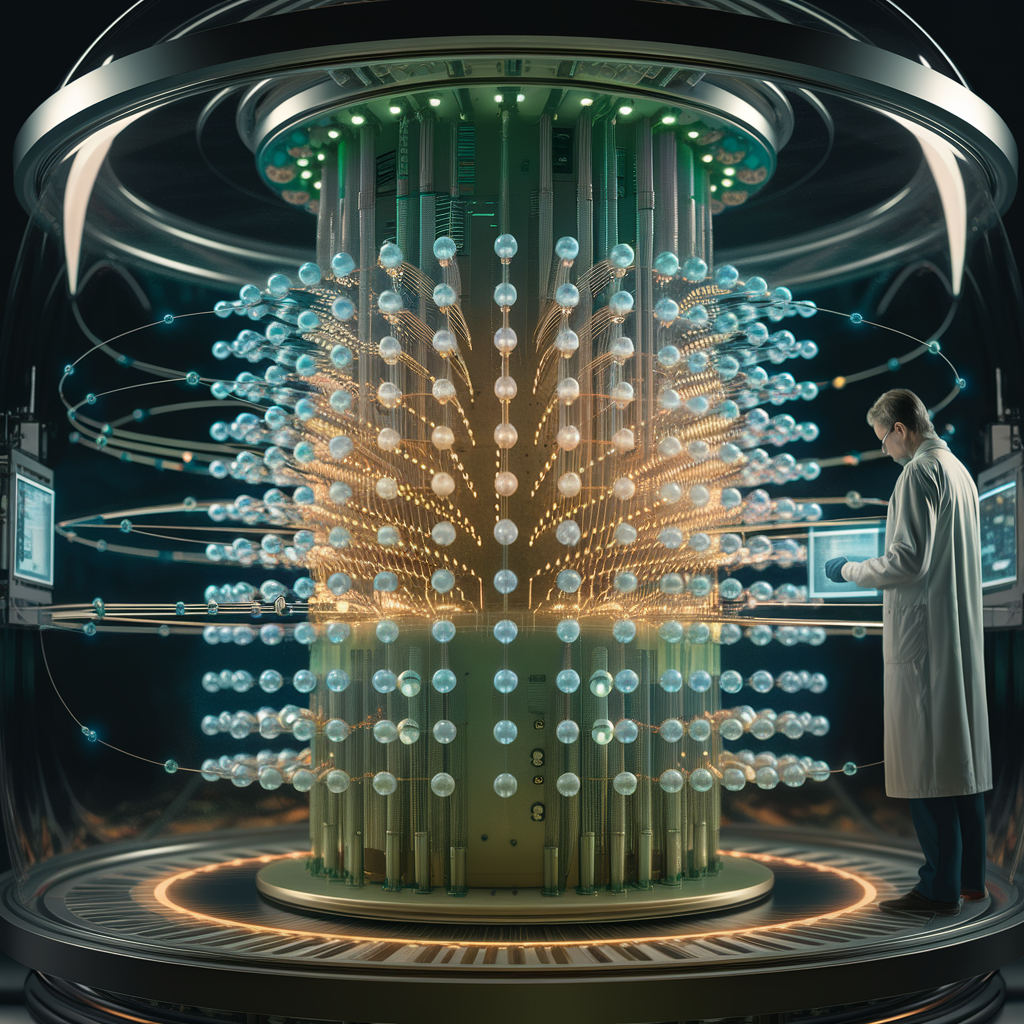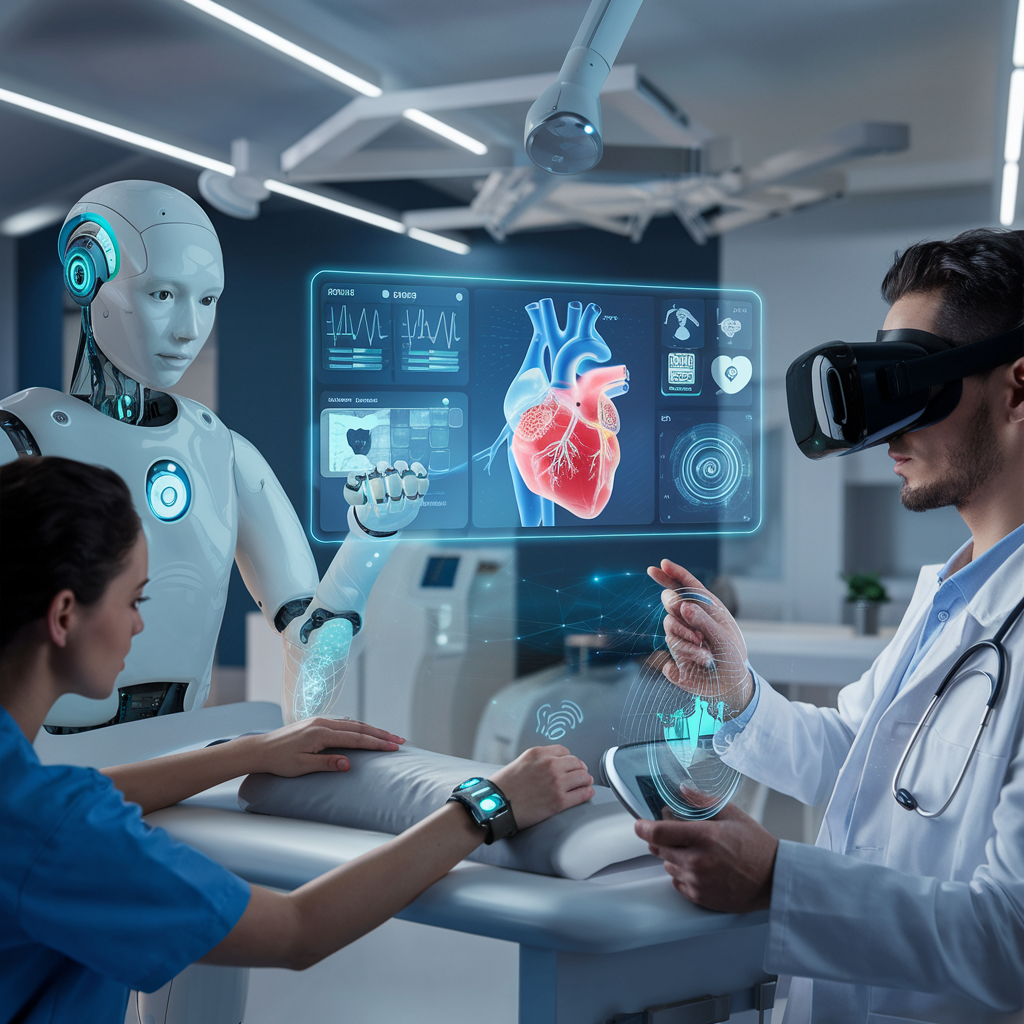Top 5 Future Technology Trends You Should Know
Technology evolves rapidly, transforming how we live, work, and interact. For businesses, professionals, and everyday consumers, staying informed about emerging trends is crucial to remain competitive and adapt to a fast-paced world. These advancements influence everything from how organizations operate to how individuals communicate and solve problems. In this context, identifying future technology trends is essential, as they can bring significant opportunities and challenges. By understanding these developments, businesses can innovate, professionals can enhance their skills, and consumers can make informed decisions about the tools they use.
In this discussion, we explore five key technology trends poised to reshape our world. These trends are not just predictions but are grounded in the trajectory of current innovations. They promise to impact industries like healthcare, education, transportation, and entertainment, revolutionizing processes and experiences.
1. Artificial Intelligence and Machine Learning
AI Evolution
Artificial Intelligence (AI) has grown exponentially since its birth. From theoretical discussions to a foundation of modern innovation.
- AI History: The journey of AI started in the mid 20th century with the concept of Turing’s Machine and basic algorithms. Computational power in the 21st century enabled significant progress, neural networks and deep learning were at the forefront.
- Recent Machine Learning Advances: Modern machine learning models are doing amazing things, from language understanding to image recognition. GPT models are an example of natural language processing advancements.
- Future Prediction for AI Capabilities: Experts predict AI will reach general intelligence where systems can do many things with human-like adaptability. This will change industries from healthcare to autonomous vehicles.
AI in Life
AI is entering our daily lives and changing how we interact with technology and the world.
- AI in Personal Devices and Home Automation: Smart assistants like Alexa and Siri are everywhere, making our lives easier. AI-driven home automation systems are making our homes more secure and efficient.
- Impact on Industries like Healthcare and Finance: In healthcare, AI is helping with diagnostics, predictive analytics, and personalized treatment plans. Financial institutions are using AI for fraud detection and customer service.
- Ethical Considerations and Societal Implications: The rise of AI raises questions about privacy, bias, and accountability. As AI systems make critical decisions we need to ensure fairness and transparency.
Job Market
AI will change the job market, it will bring challenges and opportunities.
- AI and Job Displacement: Automation will replace repetitive tasks, some jobs will go. But it will also create opportunities for reskilling and upskilling.
- New Job Opportunities in Tech: AI ethics, machine learning engineering, and data science are growing. These roles require AI and big data analytics skills.
- Future Skills for an AI Economy: Creativity, adaptability, and technical skills will be key. Investing in continuous learning will enable individuals to thrive in this new world.
2. Quantum Computing
Quantum Principles
Quantum computing is a new paradigm, using quantum mechanics to solve problems that can’t be solved by classical computation.

- Quantum Mechanics for Computing: Quantum phenomena like superposition and entanglement are the foundation of quantum computing, allowing for simultaneous computation.
- Classical vs Quantum Computing: Classical computers process binary data, while quantum computers use qubits, which are exponentially more powerful.
- Key Players in Quantum Tech: Companies like IBM, and Google and startups like Rigetti are leading the way. Governments around the world are investing heavily in quantum research.
Applications and Impact
Quantum computing can solve complex problems across industries.
- Cryptography and Data Security: Quantum algorithms will make current encryption methods obsolete.
- Drug Discovery and Materials Science: By simulating molecular interactions quantum computing accelerates the discovery of new drugs and materials.
- Challenges to Scaling Quantum: Qubit stability, error rates, and hardware scalability are the hurdles to widespread adoption.
Quantum Ahead
- Time to Mainstream Quantum: While progress has been made, it may still be a decade or more.
- Investments and Funding in Quantum Research: Public and private sectors are investing billions, quantum is a game changer.
- Academia and Industry Collaboration: University and tech giant partnerships are driving innovation, and accelerating breakthroughs.
3. Internet of Things (IoT)
What is IoT
IoT connects devices and makes them talk and automate.
- IoT and its components: IoT is sensors, software, and connectivity, a network of devices.
- Types of IoT Devices: From smart thermostats to wearable fitness trackers, IoT devices for all.
- IoT Network Architecture: IoT uses cloud computing, edge computing, and robust networks to work efficiently.
IoT Security
More IoT devices mean more security risks.
- IoT Device Vulnerabilities and Threats: Weak passwords, outdated firmware, and unsecured networks are the common vulnerabilities.
- How to Secure IoT: Strong encryption, regular updates, and secure protocols.
- IoT Regulatory and Compliance: Governments and organizations are setting standards for IoT security and privacy.
IoT Ahead
IoT will transform industries.
- Smart Cities and Connected Spaces: IoT will make cities smart, and efficient in transportation, energy management, and public services.
- 5G for IoT: Faster, more reliable connectivity will open up new IoT use cases.
- Innovative IoT Applications across Sectors: Agriculture, healthcare, and manufacturing are using IoT for productivity and monitoring.
4. Future Technology Trends in Healthcare
Healthcare is undergoing a transformation driven by groundbreaking technological advancements, significantly enhancing patient outcomes, accessibility, and efficiency. These innovations are reshaping the way care is delivered and making medical services more personalized and effective.

Telemedicine and Remote Monitoring
Telemedicine has revolutionized healthcare delivery by enabling virtual consultations. Patients can now connect with doctors and specialists from anywhere, eliminating the need for physical visits. This approach saves time, reduces costs, and is particularly beneficial for individuals in remote or underserved areas. Additionally, wearable devices such as fitness trackers and smartwatches are playing a critical role in health monitoring. These devices track vital signs like heart rate, blood pressure, and oxygen levels in real time. Such continuous monitoring allows for early detection of potential health issues, enabling preventive care before problems escalate. For patients with chronic conditions, remote monitoring ensures timely interventions and enhances the management of their health.
AI in Diagnostics and Treatment
Artificial intelligence is transforming diagnostics and treatment strategies. AI-powered tools like IBM Watson analyze vast amounts of medical data, including patient history, lab results, and imaging scans, with exceptional accuracy and speed. These tools assist healthcare providers in identifying diseases earlier and with more precision, reducing diagnostic errors. Beyond diagnostics, AI facilitates personalized medicine by analyzing a patient’s genetic profile and lifestyle to recommend tailored treatments. This approach maximizes treatment effectiveness and minimizes adverse effects, offering a more individualized approach to healthcare.
Gene Editing and Bioprinting
Emerging technologies such as CRISPR are at the forefront of genetic medicine. CRISPR allows scientists to edit specific parts of a gene with unprecedented accuracy, offering potential cures for genetic disorders like sickle cell anemia and cystic fibrosis. This technology is also being explored for treating cancers and hereditary diseases.
Bioprinting, another revolutionary advancement, focuses on creating tissues and organs using a patient’s own cells. By employing 3D printing technology, researchers are developing methods to fabricate functional biological structures. This innovation could address the global organ transplant shortage by providing organs on demand while significantly reducing the risk of immune rejection. Bioprinting is also paving the way for advancements in regenerative medicine, offering hope for patients with damaged tissues or organ failure.
Renewable Energy Technologies
Advances in Energy Generation
Renewable energy technologies are key to addressing climate change and energy demands.

- Overview of Solar, Wind, and Other Renewable Sources: Solar panels and wind turbines are leading innovations in clean energy.
- Technological Innovations Enhancing Energy Efficiency: Smart grids and energy-efficient systems optimize resource utilization.
- The Role of Energy Storage Solutions: Advancements in battery technologies, such as solid-state batteries, are critical to renewable energy adoption.
Policy and Market Dynamics
Governments and markets play a pivotal role in renewable energy adoption.
- Global Initiatives Promoting Renewable Energy Investment: Programs like the Paris Agreement emphasize global collaboration.
- The Impact of Regulatory Changes on Technology Deployment: Policies incentivizing green energy spur technological progress and adoption.
- Future Market Trends for Renewable Energy Technologies: The demand for renewable energy solutions is driving competitive innovation.
Community and Global Impact
Renewable energy has profound societal benefits.
- Successful Case Studies of Renewable Energy Projects: Examples include solar farms in deserts and offshore wind installations.
- The Effect of Renewable Energy on Local Employment: Green energy projects create jobs and boost local economies.
- The Role of Renewable Energy in Combating Climate Change: Transitioning to renewable energy reduces carbon emissions, mitigating global warming.
From Coding to Crypto: 5 Brilliant Ways to Earn in the Digital Era you should know about!
Conclusion
In conclusion, staying informed about future technology trends is not just a choice but a necessity in today’s rapidly evolving world. The technologies shaping our future—whether through advancements in artificial intelligence, breakthroughs in sustainable energy, or the integration of smart systems into daily life—hold the power to redefine industries and transform the way we live and work.
By understanding and embracing these trends, businesses can innovate more effectively, professionals can future-proof their careers, and consumers can make smarter decisions about the technologies they adopt. The future is being built today, and those who stay ahead of these trends will be better positioned to thrive in the opportunities and challenges that lie ahead.
Technology is not just about tools—it’s about creating solutions that improve lives, foster connections, and drive progress. As we look to the horizon, the possibilities are limitless, and the responsibility to harness them wisely is ours. The time to prepare for the future is now.



Nice
Great
❤️❤️❤️❤️
Such a nice Information
Helpful
Nice work
Very nice and informative articles
Very useful and informative articles about the future of the technology AI
y9sil1